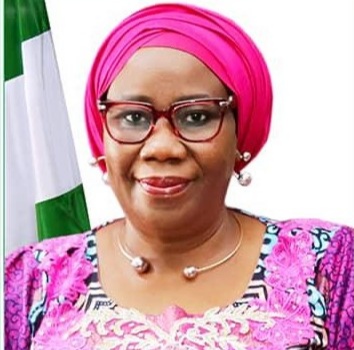The 2025 National Sensitization Workshop on the States Action on Business Enabling Reforms (SABER) opened on Tuesday in Abuja.
The $750 million initiative by the World Bank in collaboration with the Federal Government is aimed at incentivizing state-level reforms to improve Nigeria’s business climate and boost economic development.
The Permanent Secretary, Federal Ministry of Finance, Mrs Lydia Shehu Jafiya, who declared the Programme-for-Results workshop open, emphasized its significance in fostering economic growth through business-friendly reforms.
Mrs Jafiya said the Federal Government was committed to creating an enabling environment that would promote business competitiveness and attractiveness.
She explained that the SABER programme was a critical component of the Federal Government’s efforts to enhance the business climate and drive economic growth.
The Permanent Secretary highlighted the progress made so far, disclosing that 33 states and the Federal Capital Territory (FCT) have signed the Subsidiary Loan Agreement (SLA) under the SABER programme.
Also, she announced that 28 states have so far received between $1 million and $4 million in prior results disbursements, totalling $68.36 million.
She acknowledged the challenges faced by states in implementing reforms, but encouraged them to persevere.
“The Federal Government will continue to support States in their efforts to improve the business environment and attract investments,” Mrs. Jafiya assured.
Emphasizing the importance of transparency and accountability in the implementation of the SABER programme, the Permanent Secretary said governments at all levels must ensure the programme’s objectives were achieved in a transparent and accountable manner.
By streamlining processes for land acquisition and ownership, the Permanent Secretary said the programme was designed to help reduce bureaucratic hurdles and make it easier for businesses to operate.
Besides, she said the SABER programme seeks to enhance private investment in fibre optic deployment, strengthening regulatory frameworks to support growth.
The programme also prioritizes the strengthening of investment promotion agencies and public-private partnership units, recognizing the critical role these entities play in attracting investment and driving economic growth.
In addition, the SABER programme aims at improving transparency and efficiency in government-to-business services, reducing the complexity and uncertainty that could often hinder business operations.
The SABER programme builds on the successes of the States Fiscal Transparency, Accountability, and Sustainability (SFTAS) initiative, which promoted fiscal transparency and accountability at the sub-national level.
The SABER programme’s disbursements are contingent upon annual verification by an Independent Verification Agent (IVA), ensuring that states meet agreed reform milestones.
Programme Leader for Equitable Growth, Finance, and Institutions at the World Bank, Bertine Kamphuis, underscored the need for additional technical assistance, including in-person and smaller technical group meetings.
The National Programme Coordinator of the SABER Programme, Dr. Ali Mohammed, elaborated on the programme’s financial structure, emphasizing that the $750 million budget encompasses not only Programme-for-Results (P4R) disbursements, but also capacity building for state officials and implementation partners.
Participants engaged in discussions and sessions aimed at enhancing their capacity to implement the SABER programme effectively. The event provided a platform for state officials to interact with facilitators and technical assistance partners, clarifying areas of the programme and providing feedback on their experiences.
As Nigeria continues to drive business reforms, the SABER programme plays a critical role in enhancing the business environment and promoting economic growth.
“The Federal Ministry of Finance remains committed to fostering an improved business environment in Nigeria through collaborative efforts with state governments, the World Bank, and other strategic partners”.




